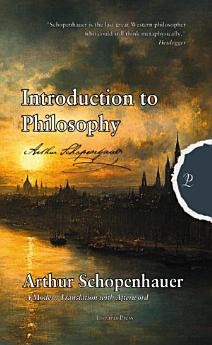Introduction to Philosophy
Giới thiệu về sách điện tử này
Schopenhauer's "Einleitung in die Philosophie" (Introduction to Philosophy), delivered as lectures during his 1820 tenure as a Privatdozent at the University of Berlin, remained unpublished during his lifetime. This work was published posthumously from the manuscript preserved in the Royal Library in Berlin by Eduard Grisebach. The text only emerged through Eduard Grisebach's meticulous editorial work on the original manuscripts preserved in the Royal Library of Berlin, finally reaching publication in the late nineteenth century. These lectures represent a crucial snapshot of Schopenhauer's pedagogical approach during his brief and ultimately unsuccessful attempt to establish an academic career in direct competition with Hegel's dominant influence. This work is critically important to understand both Nietzsche and Heidegger's obsession with Pre-Socratic philosophers, especially Anaximander, and their blaming of Socrates for ruining philosophy. This very questionable interpretation of Anaximander and Pre-Socratic history that Schopenhauer creates is adopted whole-heartedly by Nietzsche and Heidegger. The manuscript, carefully preserved among Schopenhauer's papers in what would later become the Berlin State Library, illuminates his conception of philosophical education as a process of intellectual liberation rather than systematic indoctrination. Unlike his contemporaries' tendency toward abstract systematization, these lectures begin with concrete experience and gradually lead students toward metaphysical insights. The text demonstrates his commitment to clarity and accessibility - qualities notably absent in the work of his philosophical rivals - while maintaining rigorous analytical standards. His approach emphasizes direct engagement with philosophical problems rather than mere historical exposition, reflecting his belief that philosophy should address lived experience rather than abstract theoretical constructs. The lectures' content, rescued from potential obscurity by Grisebach's editorial scholarship, reflects Schopenhauer's mature philosophical positions while revealing his pedagogical skill in presenting complex ideas to novice students. His treatment of fundamental philosophical questions - the nature of reality, the limits of knowledge, the role of will in human experience - shows how he attempted to make his ideas accessible without sacrificing their sophistication. The work stands as a testament to his conviction that philosophical insight requires both intellectual rigor and experiential understanding, while its posthumous publication history reflects the broader rejection he faced from the academic establishment. The text offers unique insights into how Schopenhauer envisioned the transmission of philosophical knowledge and his conception of philosophy as a living discipline rather than a mere academic exercise.










